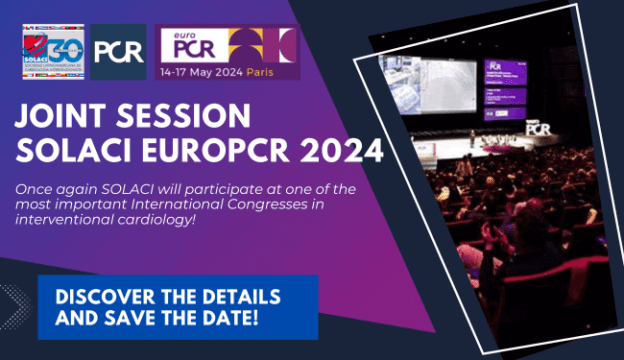The negative impact of mitral regurgitation (MR) on patient mortality, morbidity, and quality of life is widely recognized. However, only 15% of patients are referred for surgery due to their high surgical risk and low ejection fraction. Transcatheter edge-to-edge repair has become an important alternative for this group of patients.

For subjects with degenerative MR, there are two therapeutic options: the PASCAL system and the MITRACLIP system. The Randomized Controlled CLASP IID Trial (Pivotal Clinical Trial of the Edwards PASCAL Transcatheter Valvular Repair System) compared them in patients with degenerative MR and high surgical risk, demonstrating the non-inferiority of the PASCAL system at 6 months.
The aim of this study was to present the 1-year results for the primary and secondary endpoints in the CLASP IID patient cohort.
The primary safety endpoint (PSE) was defined as the rate of major adverse events at 30 days, which includes cardiovascular mortality, stroke, acute myocardial infarction, need for dialysis, severe bleeding, and reintervention on the mitral valve. The primary effectiveness endpoint (PEE) focused on the degree of MR (MR ≤ 2+) at 6 months. The secondary effectiveness endpoint (SEE) considered the rate of MR ≤ 2+ or MR ≤ 1+ at 1 year.
Read also: TCT 2023 | ISAR-DESIRE 3: 10-Year Results.
Researchers randomized a total of 300 patients, with 204 in the PASCAL group and 96 in the MITRACLIP group. There were no differences in the baseline characteristics of both populations. Regarding the PSE and PEE, the PASCAL system demonstrated its non-inferiority compared with MITRACLIP. As for the SEE, the PASCAL system continued to demonstrate its non-inferiority in the rate of MR ≤2+ or MR ≤1+ at 1 year compared with the MITRACLIP group. In addition, significant improvements were observed in patient functional class and quality of life.
Conclusion
The CLASP IID study has confirmed that the PASCAL system is safe, effective, and non-inferior to MITRACLIP. The 1-year results show a high patient survival rate with PASCAL, a low rate of complications, and sustained improvement in the degree of MR, accompanied by an improvement in functional class and quality of life. These findings support the benefits of the PASCAL treatment for patients with degenerative MR.

Dr. Andrés Rodríguez.
Member of the Editorial Board of SOLACI.org.
Original Title: One-year Outcomes from the CLASP IID Randomized Trial for Degenerative Mitral Regurgitation.
Reference: Firas Zahr, MD et al TCT 2023.
Subscribe to our weekly newsletter
Get the latest scientific articles on interventional cardiology





